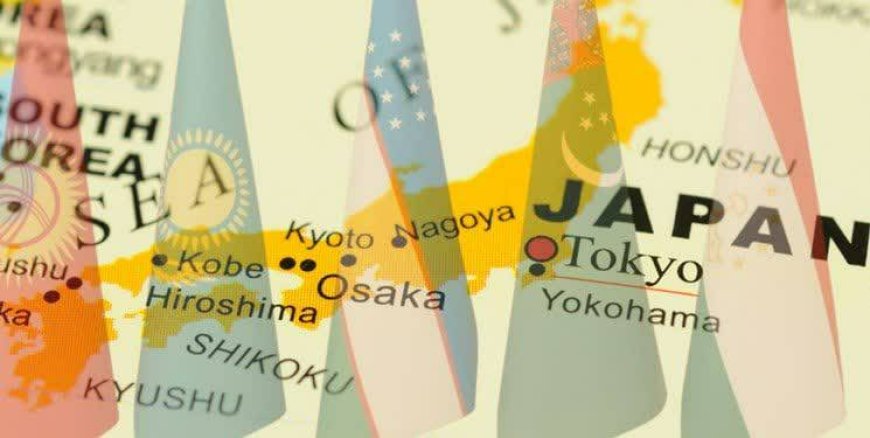Japan's Growing Influence in Central Asia: A Short Analysis
Japan's Growing Influence in Central Asia: A Short Analysis

By: N. Daneshvar
This scholarly article examines Japan's increasing efforts to establish a presence in Central Asia, particularly in newly independent republics such as Turkmenistan, Uzbekistan, and Azerbaijan. It explores Japan's multifaceted regional policy, focusing on economic cooperation, energy security, and trans-regional competition. The article also delves into the geopolitical, political, and developmental goals behind Japan's influence in the region, including its alignment with American interests and its potential role in containing China. Additionally, it discusses Japan's economic investments in Central Asia, particularly in the energy sector, and the implications for Japan's bargaining power in the global energy market. Overall, this article provides a comprehensive analysis of Japan's strategic objectives and motivations in Central Asia.
1. Introduction
Japan's increasing efforts to establish a presence in Central Asia have drawn attention in recent years. This article aims to provide a scholarly analysis of Japan's regional policy and its implications for the geopolitical landscape.
2. Japan's Regional Policy in Central Asia
2.1 Economic Cooperation and Energy Security
Japan's engagement in Central Asia is driven by economic cooperation and energy security objectives. The region's proximity to China, Russia, Southwest Asia, and the Middle East, along with its abundant energy resources, highlights its geopolitical importance to Japan.
2.2 The Silk Road Diplomacy Initiative
Japan's "Silk Road Diplomacy" initiative, based on political dialogue, economic cooperation, and participation for peace, underscores its commitment to deepening relations with Central Asian countries. This initiative has guided Japan's approach to the region since the establishment of diplomatic relations in 1992.
3. Japan's Increasing Focus on Central Asia
Over the past two decades, Japan has gradually intensified its attention to Central Asia. Through various tools and measures, Japan has sought to increase its influence in the region and potentially challenge its traditional rivals, including Russia.
4. Japan's Alignment with American Interests
Many experts argue that Japan's external presence in Central Asia aligns with American interests. As a follower of American policies, Japan's role in the region can contribute to the United States' strategy in the Far East and coalition building approach, particularly in containing China.
5. Economic and Energy Investments
Japan currently has a significant presence in Central Asia through direct investments and joint ventures in sectors such as oil and gas, petrochemicals, energy equipment production, and transportation. These investments not only provide access to the region's natural resources but also contribute to Japan's bargaining power in the global energy market.
6. Implications for Japan's Global Influence
By increasing its access to new and untapped energy resources in Central Asia, Japan can enhance its political and geopolitical standing. It can strengthen its bargaining power with traditional energy suppliers such as Iran, Saudi Arabia, and Russia, while influencing energy recipients globally.
7. Conclusion
Japan's growing influence in Central Asia is driven by a combination of economic, geopolitical, and energy security considerations. Through its regional policy initiatives and strategic investments, Japan aims to enhance its presence in the region, align with American interests, and secure its energy needs. This article provides a comprehensive scholarly analysis of Japan's objectives and motivations in Central Asia.













































